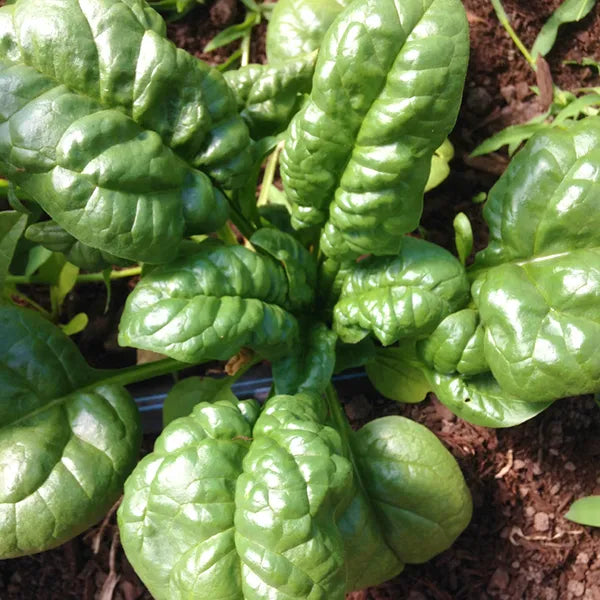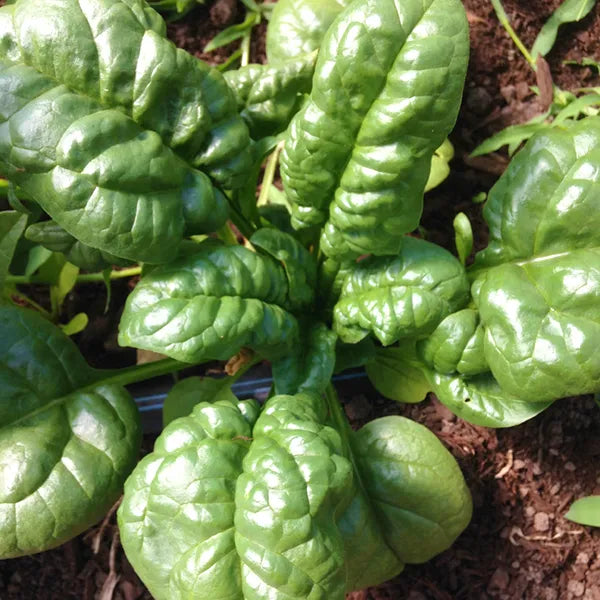My Store
Abundant Bloomsdale Spinach
Abundant Bloomsdale Spinach
Couldn't load pickup availability
Deeply crinkled, cold-hardy, slow bolting. Developed by Organic Seed Alliance. Best in spring or late summer/early Fall. Direct seed and thin to 6-8 inches apart or start indoors 3-4 weeks before planting out. Enjoy these thick, delicious greens raw or cooked. Get your vitamins! 55 days
Certified organic in British Columbia. IOPA # 1606, 1105, 1920.
How to Save Spinach Seed
Fast Facts
Latin: Spinacia oleracea
Cross Pollination: WIll cross with other spinach varieties
Isolation Distance: 800 feet
Minimum Population Size (variety maintenance): 20-50 plants
Minimum Population Size (genetic preservation): 80 plants
Seeding and Care
Spinach is quite prone to bolting due to heat. For the best seed crop, grow spinach through the winter where possible, or plant as early as possible in spring to give plants maximum time to develop and grow big, healthy leaves. Seed plants 10-12” apart, or plant densely and thin to the desired spacing. Care for plants as usual and rogue out small, deformed, sickly or fast-bolting plants.
Seed Maturity
Spinach will put up flowering stalks reaching 2-3’ tall. Spinach plants are dioecious, meaning that a plant will be either male, producing pollen, or female, producing flowers from which seeds will develop following fertilization. Male, pollen producing plants will tend to emerge first. Once the female plants have flowered, you can help your seed crop along by gently shaking male plants to release clouds of pollen that will fertilize the female flowers.
Spinach seeds are not prone to falling off the stalk until very late in the drying process, so wait until they are good and dry, then cut the female plants and lay on a tarp to dry completely, if necessary, or move right on to cleaning.
Seed Cleaning
Thresh the seeds by laying the entire dry seed stalks on a tarp and stomping and shuffling on the plants to crack open the pods and detach the seeds. It’s important that seeds are very dry at this stage to prevent them being crushed by the threshing process. Shake the threshed material through a screen, allowing the seeds to pass through and the larger debris to remain on the top. Then, winnow using wind or a fan, pouring seeds from one container to another while allowing the lighter chaff to blow away.


